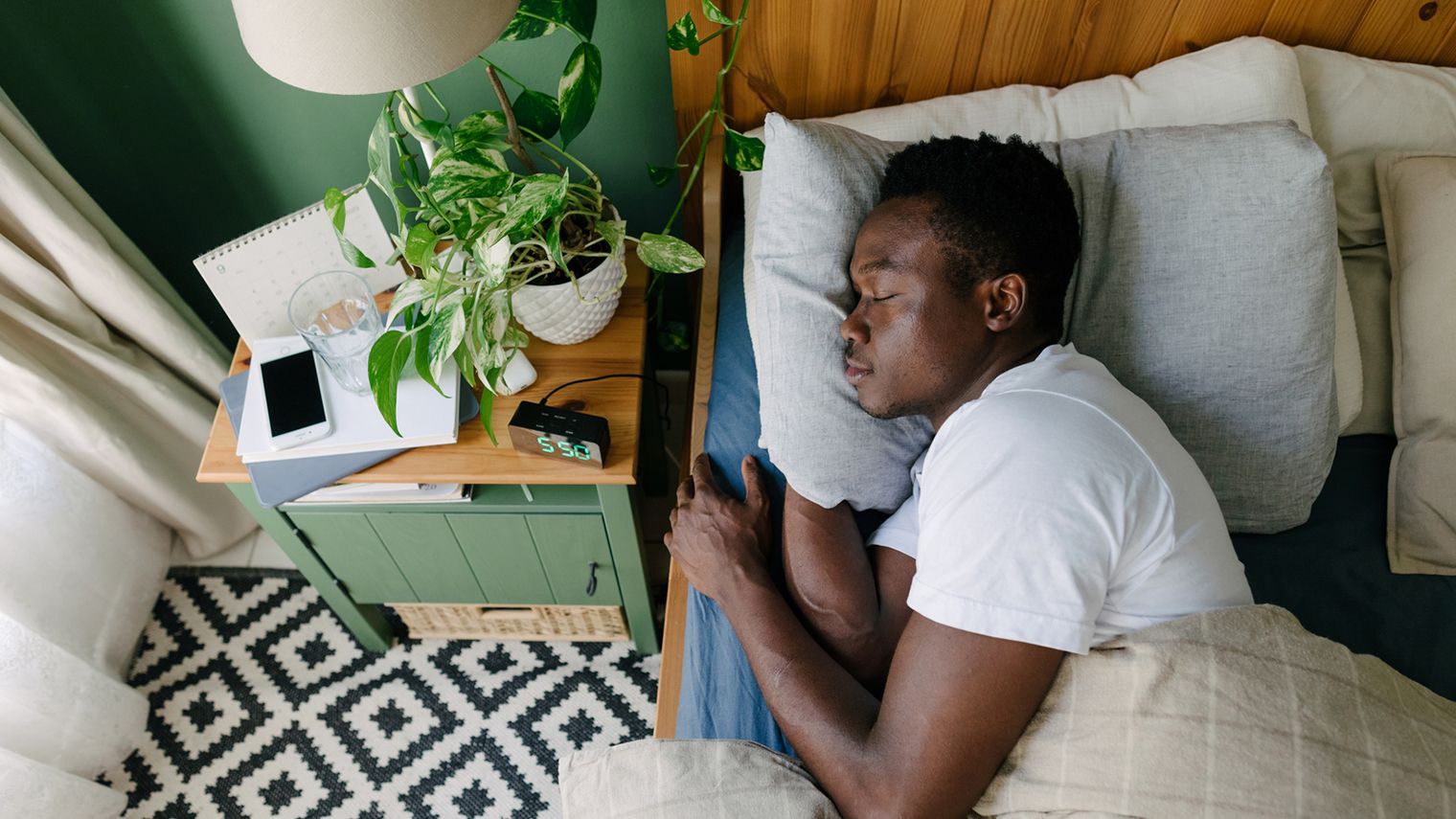How to Manage Sleep Anxiety So You Can Rest Well and Prevent Flare-Ups
May 23, 2024
Content created for the Bezzy community and sponsored by our partners. Learn More

Photography by Tanya Yatsenko/Stocky United
Sleep is crucial when you have a chronic condition. You can manage anxiety about missing sleep with CBT for insomnia to get your best rest and reduce your risk of flare-ups.
Sleep disturbances are common for people living with any chronic condition, like me.
A bad night of sleep can make you feel awful in the best of times. When you add a chronic condition and stress about flare-ups from not sleeping well, a night of poor rest can be daunting.
It can even create anxiety about going to sleep, which can lead to more nights where you don’t get enough rest.
The good news is there are ways to manage anxiety about missing sleep so you can get a good night’s rest and hopefully avoid a flare-up.


How anxiety affects your sleep
Worrying about whether you’ll get a good night’s rest is stressful. It causes your body to release hormones that make you alert and ready to act.
These aren’t the types of chemicals you want floating around your body just before you go to bed. They’re the opposite of relaxing.
Instead, they make you prone to insomnia. This includes having trouble falling asleep or sleeping for short periods and lying awake much of the night.
You might also wake up too early or feel as if you haven’t slept at all.
Insomnia and chronic health conditions
Many people living with chronic health issues have trouble with insomnia. It’s also common to worry that it will only make things worse. Research shows there may be some merit to this concern.
For example, about 77% of people with active IBD and 49% of those with inactive IBD (in remission) experience sleep disturbances.
In a 2023 study analyzing treatments for insomnia for people with IBD, including Crohn’s and ulcerative colitis, participants felt that lack of sleep made their IBD worse.
An older 2013 study also found that sleep disturbances caused flares in people with Crohn’s disease.
People living with migraine are also more likely to develop insomnia. A 2023 study showed that people with both insomnia and migraine have more migraine attacks than those without insomnia. The study also showed that anxiety about insomnia could cause more headache days.
According to a 2021 study, people with MS are also 3 to 5 times more likely to experience sleep disorders.
According to a 2019 study, people with relapsing-remitting MS with poor sleep quality are more like to relapse for a longer period of time.
Strategies for managing anxiety and insomnia
Cognitive behavioral therapy for insomnia (CBT-I) is an intervention that has been shown to help improve sleep as well as mood and anxiety symptoms. It’s a 6- to 8-week treatment guided by a healthcare professional, nurse, or therapist.
During treatment, candidates work on replacing the thoughts that are keeping them from sleeping with more constructive thoughts.
For example, you might work on reframing thoughts about not sleeping well or about a chronic condition worsening so they make you less anxious.
This is done through a process called cognitive restructuring. You can change your response by noticing how you think about things, like lack of sleep and how it might impact your health condition. Then your actions and accompanying stress levels can change, too.
In addition, CBT-I also includes other techniques to develop good habits that will help you sleep.
These include:
- relaxation or meditation therapy
- sleep education
- sleep restriction
- stimulus control
Relaxation or meditation therapy involves techniques for relaxing the body. These can include breathing exercises, hypnosis, meditation, or other techniques.
Sleep education involves decreasing habits that can interfere with a good night’s rest. This can include diet or exercise tips as well as suggestions for creating a supportive sleeping environment.
Sleep restriction reduces the amount of time spent in bed so that you sleep more and lie awake less. This eventually helps you sleep better when you go to bed.
Stimulus control works to change the negative associations you might have with the bedroom, making it a more welcoming environment for sleep.
CBT-I and chronic conditions
CBT-I has been proven to be an effective treatment for insomnia. It’s also been studied and found to be effective for individuals living with many types of chronic conditions.
These include:
CBT-I may also have positive long-term effects for those with chronic conditions.
For instance, individuals with migraine who used CBT-I had 60% fewer headaches at a follow-up. People with RA who used CBT-I said that it had become a habit that helped them cope with their symptoms.
How to get started with CBT-I
If you want to try CBT-I, talk with your doctor to see if it’s a good option for you based on your condition. Some of the components, like sleep restriction, may not be appropriate for everyone.
If you decide to try CBT-I, it’s best to work with someone who’s trained in the intervention. They can also recommend apps and workbooks to support your efforts.
Call your insurance company for in-network therapists or ask your primary care doctor for a referral.
Takeaway
CBT-I is an evidence-based technique for overcoming insomnia that interferes with life. It can be helpful for people with chronic illnesses who experience sleep interruptions and symptom flares related to missing sleep.
Get started by speaking with your doctor to see if CBT-I is right for you.
Medically reviewed on May 23, 2024
10 Sources


Like the story? React, bookmark, or share below:
Have thoughts or suggestions about this article? Email us at article-feedback@bezzy.com.
About the author